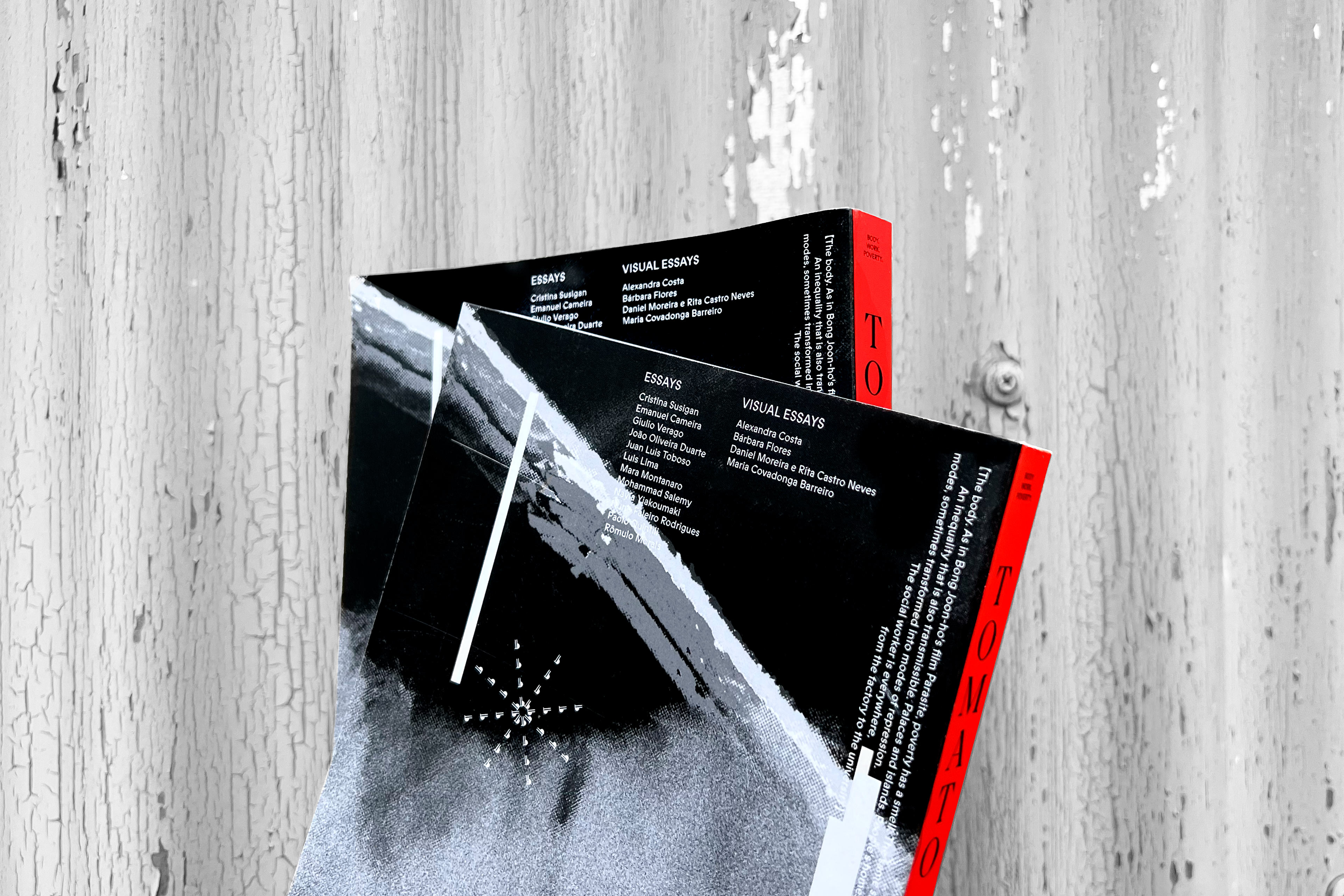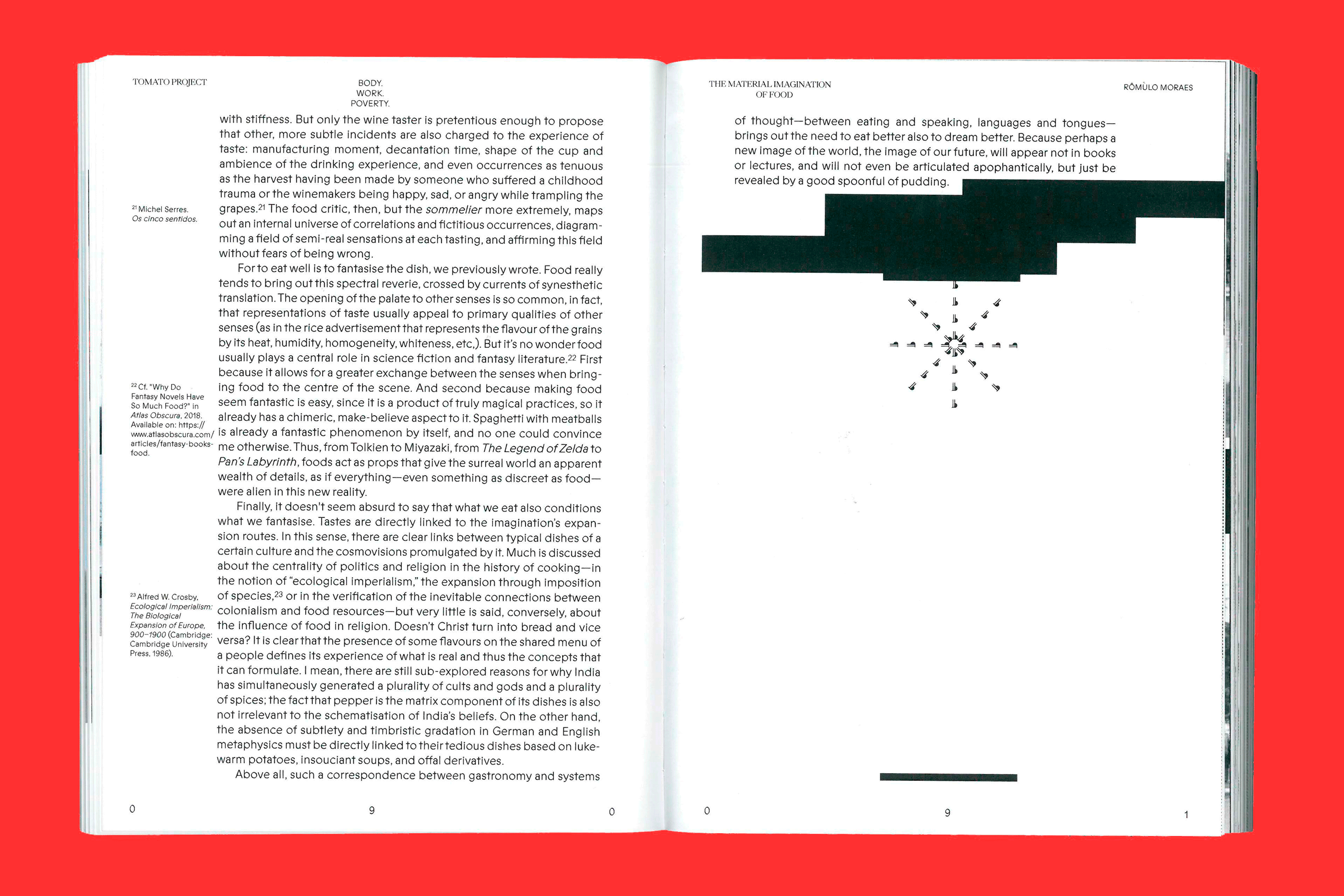03
︎︎︎ bookTOMATO. BODY. WORK. POVERTY.
Tomate. Corpo. Trabalho. Pobreza.Can the pages of a book have a life of their own? A unique reality capable of revealing itself through the gaze of the reader...
We believe that a book can be an extension of a discourse and not just its end point—the materiality of the ink that stretches across the paper, generating words, images, tensions, and repetitions: movements of a reality both visible and sensed that reveals itself through matter and its iterations.
The pages are the worn-out walls of the house. The humidity that took over dignity... now, surviving walls, bodies and memories: shadows of imagined and distant futures. But futures still present, voiced, written. And if present time exists, does that mean theres space for possibility? We hope so. Such a thorny virtue, hope.
This book includes essays that are both written and visual, as well as photographic records of an exhibition that was held at the K11 Paiol Azul gallery and the workers' row houses, we so call islands.
152x208mm
ISBN 978-972-8784-99-7
288p.
Client: Eduarda Neves,
Centro de Estudos Arnaldo Araújo
We believe that a book can be an extension of a discourse and not just its end point—the materiality of the ink that stretches across the paper, generating words, images, tensions, and repetitions: movements of a reality both visible and sensed that reveals itself through matter and its iterations.
The body. As in Bong Joon-ho's film Parasite, poverty has a smell. The same smell. And those bodies stink. Houses too. Social inequality crosses these places. An inequality that is also transmissible. Palaces and islands. People's homes. Some are rich and others poor. Bodies of work, survival bodies, divided into production modes, sometimes transformed into modes of repression. The social worker is everywhere, from the factory to the university. (the author)
The pages are the worn-out walls of the house. The humidity that took over dignity... now, surviving walls, bodies and memories: shadows of imagined and distant futures. But futures still present, voiced, written. And if present time exists, does that mean theres space for possibility? We hope so. Such a thorny virtue, hope.
This book includes essays that are both written and visual, as well as photographic records of an exhibition that was held at the K11 Paiol Azul gallery and the workers' row houses, we so call islands.
152x208mm
ISBN 978-972-8784-99-7
288p.
Client: Eduarda Neves,
Centro de Estudos Arnaldo Araújo





















